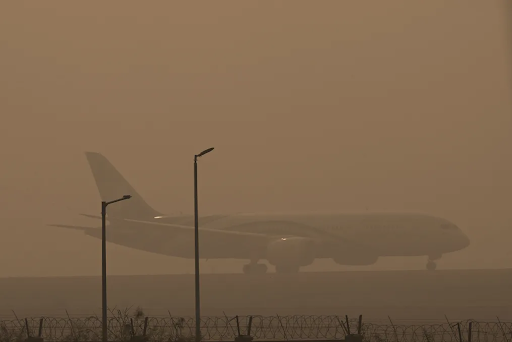School-and education in general-is seen as a blessing, and a gateway to a better life. However, as with any important thing, it can easily be taken away. On November 8, 2023, New Delhi, India’s capital city, shut down all schools as a measure to protect students from the smog that currently blankets the city; all classes have been moved online until the shutdown expires on November 18. .
Believe it or not, this horrible pollution always spikes at the beginning of November. No one is safe from the noxious clouds, but those with allergies and respiratory problems are particularly vulnerable.
The shutdown of schools is just one measure-and consequence-of the smog that covers New Delhi. Thanks to the cloud, the World Cricket Championship has banned fireworks, as well as canceled training matches. The government is scrambling to take care of the issue, one of the challenges is finding out how the cloud started. Surprisingly, a major cause has to do with agriculture.
Most would think that plants, such as trees, would take in carbon dioxide and release oxygen, helping to clear up New Delhi’s air. While this is true, what farmers do with the crops contributes to the smog. They have an annual process of burning their extra crops around the beginning of November every year. This efficiently prepares the land for the next crop; although, it is also a prominent reason that smog always covers New Delhi in early November.
The Indian Supreme Court has issued an order for New Delhi and the surrounding states to stop farmers from burning their crop residue. Officials hoped this would stop the problem from getting worse, and prevent future pollution instances.
Additionally, India has imposed the “odd-even rule” for one week, starting on November 13. This requires vehicles with odd numbered license plates to only drive on odd numbered days, leaving vehicles with even numbered license plates to drive on even numbered days.
Ultimately, it didn’t work, so, in a last ditch effort, officials have hatched an odd new plan.
In the week before Diwali, the Indian festival of lights, showers of rain washed away the smog particles in the air. Unfortunately, the outcome was reversed by firecrackers that were set off for the holiday. Around November 20, New Delhi will try out a new, revolutionary method to induce rain: cloud seeding.
Cloud seeding introduces substances like silver iodide into a cloudy sky, which will latch on to water droplets, making them heavier and forcing them to fall as rain. Should this process work, it will replicate the showers that brought down the pollution level in the week before Diwali.
Even if cloud seeding works as planned, it will not be enough to solve New Delhi’s smog problem. Farmers who burn their crops often do not have another choice. The odd-even rule is only in effect till November 18th. The drop in car emissions will almost immediately be reversed. Temporary relief is not a solution, and if the government fails to find a real one, the suffocating blanket of pollution could tighten its grip on the already breathless city.































